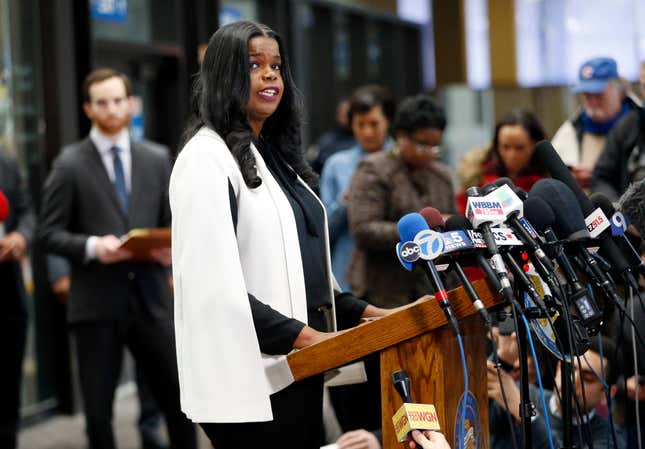
It’s not exactly a secret that black folks are disproportionately affected by marijuana convictions. But Chicago prosecutor Kim Foxx has big plans to right an egregious wrong.
The Chicago Sun-Times reports that Foxx has big plans to erase the pot-related charges of thousands of Chicago residents.
Cook County State’s Attorney Kim Foxx said she is still on track to begin wiping clean thousands of minor cannabis convictions in the coming months, but acknowledges that her office is still trying to determine how exactly to implement her bold plan.
She also said in an interview with the Sun-Times last week that her office was also taking a look at her office policy toward prosecuting those arrested for the sale of marijuana, but said the review was still in its early stages.
During a January speech to the City Club of Chicago, Foxx first pledged her support for the full legalization of weed and declared that her office would “pursue the expungement of all misdemeanor marijuana convictions.”
Which sounds all well and good, but how exactly will she go about pulling this off?
Noting the arduous process of cataloguing years of convictions, Foxx told the Sun-Times that her office won’t attempt to expunge them all in one fell swoop. Nevertheless, the state’s attorney’s office hopes to start clearing the first round of convictions in a matter of months, she said.
Foxx said her office is seeking to enlist a nonprofit, Code For America, which has already assisted with expungements in California.
Code for America “can help us find some infrastructure support of being able to look at the [Cook County] clerk’s office, Dorothy Brown’s office, to be able to identify batches of people who are found or convicted of the statutory code for possession of marijuana,” she said.
In February, the San Francisco District Attorney’s office dismissed 8,132 convictions dating back to 1975 with the help of Code for America—which used a computer algorithm to identify cases that were cleared for dismissal after recreational marijuana was legalized in California in 2016.
“The question is, how far back can we go? How far back does the data go — which will give us what our universe looks like? But we’re in the process of figuring that out,” Foxx said. She also intends to work with state officials to determine if her office can file petitions for expungement on behalf of those with minor pot convictions.
The state’s attorney’s office and Code for America have yet to sign a formal agreement, but Code for America spokeswoman Maria Buczkowski confirmed the nonprofit is in talks with the state’s attorney’s office.
Considering that black folks are arrested at four times the rate of our white counterparts, this is clearly a step in the right direction.

